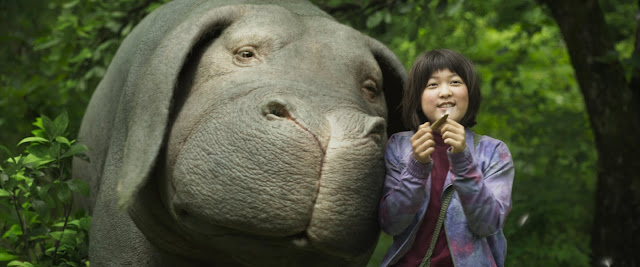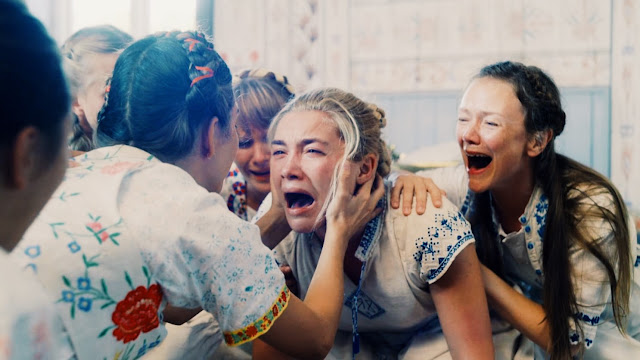Yojimbo (1961)
FILM CLASSIC REVIEW #9
This Town Ain't Big Enough - an analysis of Yojimbo

You've just sat down to watch a film by Akira Kurosawa. Make sure you're not squeamish by the sight of decapitated limbs and swords smashing into samurais. Kurosawa is the original master of the violent Japanese samurai flick. I wouldn't be surprised if Quentin Tarantino gets down on his knees and prays to him by his bedside at night. This genre of film that he created is based upon the period of "Jidaigeki", which has its origins in Kabuki theater. It's the music of the swords. It's the story of brave samurais fighting in honor of their families and towns. It might sound foreign to you, but it's really not. "Jidaigeki" genre movies supplied many concepts and ideas that inspired what we all know as the Spaghetti Western. Well, you should know, it was a little too inspired, but that's a story to get into another day. Kurosawa's films have an amazing shelf life to cinephiles across the globe, and none more important than Rashomon. But I have just watched, what I feel to be the best example of Kurosawa's influence on the western genre, and what I feel to be an especially compelling and entertaining piece of work, Yujimbo.

Yojimbo has a story, not that complicated, and told so many times, you'd think you've sat down to watch some clichéd schlock. As I've stated before, it's about the lone hero, or in this case, the lone samurai, who somewhere along his travels comes upon a village that has been split between two rival gangs. In the town are the struggling families and business owners that are victimized day in and day out by the constant robberies and assaults from the gangs, as well the insufferable and corrupt police officer that gleefully capitulates to the two rival gangs. They ravage throughout the town, and out of sympathy for the townspeople, or perhaps just for the hell of it, the lone samurai decides to pit the two against each other in order for them to fight to death. It is out of his virtue to save the town from the hands of crime, and he's well aware of it very early on in the film, as he notices a dog carrying a severed human hand around the town. This is the Wild West, or shall we say, the wild east. In this little town, the lone samurai helps cause chaos and showdowns abound as the rival gangs fight for territory. It's almost comedic how much manipulation he has over them. I loved how it didn't always work out. For instance, the lone samurai is seen overhearing a conversation of the hotel owners planning to kill him in order to not pay for his stay. It seems like he's been causing a lot of trouble, much to the chagrin of the town's people.

I really enjoyed the balance between action, story and humor. Unlike Rashomon that captivates with a rigid, dramatic story with a lot of unsightly, gruesome characters trying to eat each other alive, this is a fun little western. It's a classic in the genre as it gets. The lone samurai even bears a strange resemblance his American counterpart, Clint Eastwood, complete with his squinty eyes and scowl. The man in question is Toshiro Mifune, and he has a spectacular track record with Akira Kurosawa. Every time he collaborates with him, you're going to get an unbelievable performance. In Rashomon he was the insane, giggling bandit, and here, he's the silent, master of the sword, who could cut your arm off with a single blow. He's the original badass movie star. Even when he goes down, he goes down hard. When the lone samurai gets captured towards the end of the film, he is seen slowly and painfully making his mistake. This probably was my favorite scene, for it demonstrates Mifune's range as an actor, and his willingness to discomfort himself for the benefit of the story.
The picture also has a really unique soundtrack. I overheard someone in the audience chuckling about it, for it sounded a little similar to "Big Band". The music fits the attitude of the picture splendidly. It's a big, loud soundtrack to a big story. The cinematography was also very ambitious for it's time, and Kurosawa's main cinematographer, Kazuo Miyagawa, noticeably builds upon his great talent of the image since Rashomon. The battle sequences are sweeping and detailed with all the blood and guts intact. The spectacular scene in which the lone samurai is escaping is staged and shot beautifully. Miyagawa holds an exceptional gift of bringing the Edo Japanese era vibrantly to life.
Yojimbo is a violent epic, and one of Kurosawa's most startlingly good achievements. It's entertaining, thrilling and a credit to the history of Japanese cinema.
This Town Ain't Big Enough - an analysis of Yojimbo

You've just sat down to watch a film by Akira Kurosawa. Make sure you're not squeamish by the sight of decapitated limbs and swords smashing into samurais. Kurosawa is the original master of the violent Japanese samurai flick. I wouldn't be surprised if Quentin Tarantino gets down on his knees and prays to him by his bedside at night. This genre of film that he created is based upon the period of "Jidaigeki", which has its origins in Kabuki theater. It's the music of the swords. It's the story of brave samurais fighting in honor of their families and towns. It might sound foreign to you, but it's really not. "Jidaigeki" genre movies supplied many concepts and ideas that inspired what we all know as the Spaghetti Western. Well, you should know, it was a little too inspired, but that's a story to get into another day. Kurosawa's films have an amazing shelf life to cinephiles across the globe, and none more important than Rashomon. But I have just watched, what I feel to be the best example of Kurosawa's influence on the western genre, and what I feel to be an especially compelling and entertaining piece of work, Yujimbo.

Yojimbo has a story, not that complicated, and told so many times, you'd think you've sat down to watch some clichéd schlock. As I've stated before, it's about the lone hero, or in this case, the lone samurai, who somewhere along his travels comes upon a village that has been split between two rival gangs. In the town are the struggling families and business owners that are victimized day in and day out by the constant robberies and assaults from the gangs, as well the insufferable and corrupt police officer that gleefully capitulates to the two rival gangs. They ravage throughout the town, and out of sympathy for the townspeople, or perhaps just for the hell of it, the lone samurai decides to pit the two against each other in order for them to fight to death. It is out of his virtue to save the town from the hands of crime, and he's well aware of it very early on in the film, as he notices a dog carrying a severed human hand around the town. This is the Wild West, or shall we say, the wild east. In this little town, the lone samurai helps cause chaos and showdowns abound as the rival gangs fight for territory. It's almost comedic how much manipulation he has over them. I loved how it didn't always work out. For instance, the lone samurai is seen overhearing a conversation of the hotel owners planning to kill him in order to not pay for his stay. It seems like he's been causing a lot of trouble, much to the chagrin of the town's people.

I really enjoyed the balance between action, story and humor. Unlike Rashomon that captivates with a rigid, dramatic story with a lot of unsightly, gruesome characters trying to eat each other alive, this is a fun little western. It's a classic in the genre as it gets. The lone samurai even bears a strange resemblance his American counterpart, Clint Eastwood, complete with his squinty eyes and scowl. The man in question is Toshiro Mifune, and he has a spectacular track record with Akira Kurosawa. Every time he collaborates with him, you're going to get an unbelievable performance. In Rashomon he was the insane, giggling bandit, and here, he's the silent, master of the sword, who could cut your arm off with a single blow. He's the original badass movie star. Even when he goes down, he goes down hard. When the lone samurai gets captured towards the end of the film, he is seen slowly and painfully making his mistake. This probably was my favorite scene, for it demonstrates Mifune's range as an actor, and his willingness to discomfort himself for the benefit of the story.
The picture also has a really unique soundtrack. I overheard someone in the audience chuckling about it, for it sounded a little similar to "Big Band". The music fits the attitude of the picture splendidly. It's a big, loud soundtrack to a big story. The cinematography was also very ambitious for it's time, and Kurosawa's main cinematographer, Kazuo Miyagawa, noticeably builds upon his great talent of the image since Rashomon. The battle sequences are sweeping and detailed with all the blood and guts intact. The spectacular scene in which the lone samurai is escaping is staged and shot beautifully. Miyagawa holds an exceptional gift of bringing the Edo Japanese era vibrantly to life.
Yojimbo is a violent epic, and one of Kurosawa's most startlingly good achievements. It's entertaining, thrilling and a credit to the history of Japanese cinema.


Comments
Post a Comment